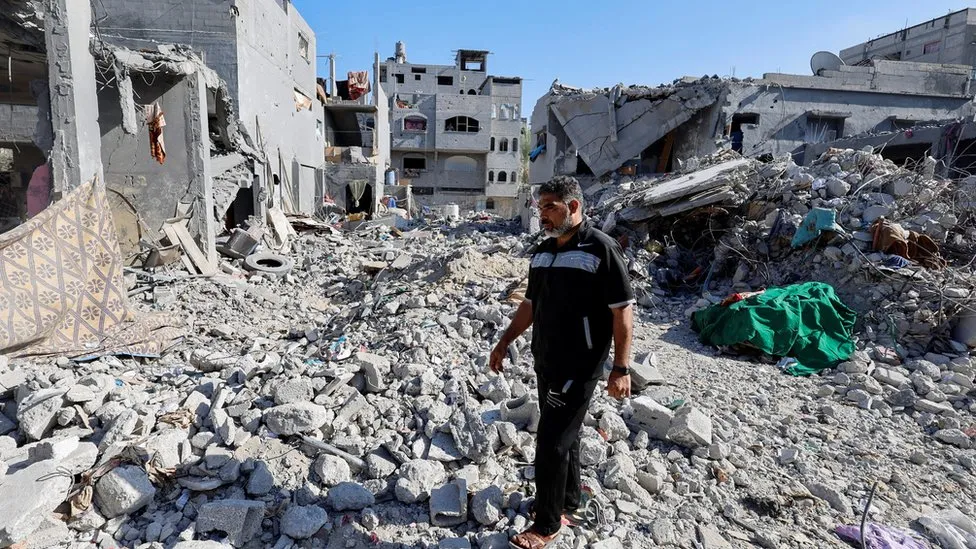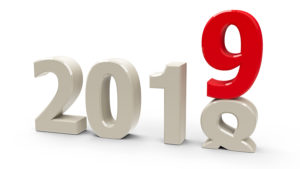As the Israeli government of Prime Minister Benjamin Netanyahu rolls out "Nakbah 2023", a former senior US diplomat has been caught on a viral video telling an Arab street food vendor in New York that the killing of 4,000 Palestinian children in Gaza is "not enough". The video shows Stuart Seldowitz, who worked on the National Security Council South Asia Directorate under President Barack Obama, beginning by insulting Prophet Mohammad (PBUH) and the Holy Quran, and then goes on a hateful anti-Muslim and anti-Palestinian tirade. Seldowitz also served as deputy director/senior political officer in the U.S. State Department’s Office of Israel and Palestinian Affairs from 1999 to 2003. This incident raises the question: Is Islamophobia shaping the US policy in the Middle East and South Asia regions?
 |
| Stuart Seldowitz, Former US Senior National Security Official |
US-Pakistan Ties:
US-Pakistan relations hit an all-time low during the Obama years when Stuart Seldowitz worked on the National Security Council South Asia Directorate. Did Seldowitz contribute to the downward spiral? Would the ties have tanked as rapidly and as far as they did if he wasn't there? Were there other Islamophobes in policy roles who caused it? Seldowitz's recent hateful comments about Muslims and Palestinians do raise all these questions.
Nakba 2023:
"We're rolling out Nakba 2023", said Israeli government minister Avi Dichter, referring to Israel's genocidal war on Gaza on November 12, 2023, according to Haaretz newspaper. Nakbah, meaning catastrophe, is what the Palestinians call their forced removal from their homes and lands by violent Zionist militias in the 1940s.
Since Dichter's statement about "rolling out Nakba 2023", another Israeli minister, Gila Gamliel, has explained in a Jerusalem Post op ed why Israel has made large parts of Gaza un-inhabitable. In her words, Israel wants to "promote the voluntary resettlement of Palestinians in Gaza, for humanitarian reasons, outside of the Strip."
 |
| Palestine Partition Plan of 1937 |
The Nakba 1 happened in contravention of the Balfour Declaration on British support for a Jewish state in Palestine that clearly stated: "it being clearly understood that nothing shall be done which may prejudice the civil and religious rights of existing non-Jewish communities in Palestine."
 |
| Balfour Declaration. Source: Jewish Virtual Library |
Settler Colonialism:
Zionist Psyche:
How do Zionists like Stuart Seldowitz, Avi Dichter and Gila Gamliel think about what is going on in the Middle East? I wrote the following piece a couple of weeks ago to explain it:
Zionists are "secular" but they use God as their "land agent" who gave them the "promised land", says Professor Avi Shlaim of Oxford University. Jews are God's "chosen people" who are exempt from the rules that apply to non-Jews, according to Israeli author and journalist Gideon Levy. Israel is carrying out "ethnic cleansing … and that may become genocide”, adds Israeli American scholar Omer Bartov. "No, Palestinians did not commit acts of terrorism, Israel did", tweets Miko Peled, an ex IDF soldier and son of a former Israeli general. These few quotes summarize current thoughts of some of the former Zionists.
Israel Turns Gaza into Rubble
Israeli author and journalist Gideon Levy:
The core of Zionism is the "feeling of being chosen people" that is "deep rooted" in Israel. A consequence of it is that the rules and laws that apply to others do not apply to Israelis. Here's a quote from one of his speeches:
"This is the core of Zionism. This feeling of chosen people is still very deep rooted in Israel. The consequence is that everything which refers to any other country in the world does not refer to Israel. That we are a special case. That international law should be implemented everywhere, but we are a different case. That a Molotov bottle against a Jewish soldier is not like a Molotov bottle against a Russian soldier because we are different, because we are chosen, because of this damned Jewish supremacy".
On Israel's campaign of dehumanizing Palestinians, Levy says:
“My biggest struggle is to rehumanize the Palestinians. There’s a whole machinery of brainwashing in Israel which really accompanies each of us from early childhood, and I’m a product of this machinery as much as anyone else. [We are taught] a few narratives that it’s very hard to break. That we Israelis are the ultimate and only victims. That the Palestinians are born to kill, and their hatred is irrational. That the Palestinians are not human beings like us… So you get a society without any moral doubts, without any questions marks, with hardly public debate. To raise your voice against all this is very hard.”
Levy believes that the talk of the peace process and two-state solution is a scam perpetrated by Zionists. Here's Levy in his own words:
"Now the real turning point should be, for us, the moment that each of us realize that the Israeli occupation is not a temporary phenomenon. I think that most of the people, if not all of them, understand that the occupation is there to stay. And Israel never had the slightest intention to put an end to it. All the efforts were only to mislead the West and to maintain the occupation. All this longest peace process in history, which never led to anywhere, was never aimed to lead to anywhere. All those efforts were only in order to mislead you and enable the occupation to grow, including Oslo".
Professor Avi Shlaim:
Oxford Professor Avi Shlaim believes that Israel "prefers land to peace", adding that "land grabbing and peacemaking don't go together". Here's his exact quote:
"Land grabbing and peacemaking don’t go together, it’s one or the other, and by constantly expanding settlements, Israel showed that it prefers land to peace....Israel by its actions has shown that it is not interested in having a Palestinian partner for peace because it wants to maintain its control over the territory. Israel refuses to accept Hamas as a negotiating partner. Israel’s position is that Hamas is a terrorist organisation – pure and simple. It will never negotiate with it. Benjamin Netanyahu’s policy has been to let Hamas rule the Gaza Strip, but to contain the Gaza Strip, and this policy collapsed, because Gaza could not be contained."
Professor Omer Bartov:
Holocaust scholar Omer Bartov has warned of "genocide" in Gaza. He has talked about "clear intention of ethnic cleansing" in the narrow strip of two million Palestinians under heavy bombardment by Israeli forces since the October 7 terrorist attack by Hamas in Israel. Here's a quote from him:
"So, my sense is the following. Israeli political leaders and military leaders have made very startling and frightening statements about Gaza, speaking about flattening Gaza, speaking about Hamas, but by sort of extending it also, by extension, also Gazans, in general, as human animals, speaking about moving the entire population of Gaza out of Gaza. That is a clear intention of ethnic cleansing. So, those statements show intent. And that’s a genocidal intent, which is often very difficult to prove in genocide. People who carry out genocide don’t always want to say that they’re doing it".
Former Israeli Soldier Miko Peled:
Miko Peled, whose father was a general in the IDF and who himself served in the Israeli military, says that Israel is the biggest obstacle to peace in the Middle East. Talking about the October 7 surprise attack by Hamas on Israel, he says that "Israel is behaving like a gangster who has been humiliated taking vengeance upon innocent civilians, killing thousands upon thousands". "It's not a question of self-defense, it's a question of brutality and revenge because Israel was humiliated", he adds in an interview on Al Jazeera English.
Peled accuses Israel of lying about the October 7 attack. He said the testimony is now showing that most of the Israeli civilians on October 7 were killed by the Israeli helicopters firing indiscriminately. He says the western governments who support Israel “are supporting the fight against justice, the fight against peace”.
Peled says that “liberal Zionism” is a myth and all forms of Zionism amount, in practice, to the denial of fundamental rights and freedoms for the Palestinian people. This process starts at a young age for Israeli children whose history textbooks claim that the Palestinians left their homes of their own free will, that they were not driven out by Jewish militias in the 1940s. These history books deny what the Palestinians call "Nakbah", meaning Great Catastrophe, that forced them to flee their homes as part of the Zionist plan to ethnically cleanse what is now Israel.
Related Links:
Haq's Musings
South Asia Investor Review
Modi and Netanyahu: Two Sides of the Same Coin
Israel's Gaza Attack is Criminal, Not Defensive
Pictorial Review of Israel's Young Gaza Victims
American College Campuses Rise Up Against Israel's Genocidal War on Gaza
Israeli Settler Colonialism
India Promotes Half Truths About UNSC Kashmir Resolutions
Obama's Parting Shot Against Pakistan
Total, Extended Lockdown in Indian Occupied Kashmir
What is India Hiding From UN Human Rights Team?
Indian JNU Professor on Illegal Indian Occupation of Kashmir, Manipur, Nagaland
Riaz Haq Youtube Channel
VPOS Youtube Channel













